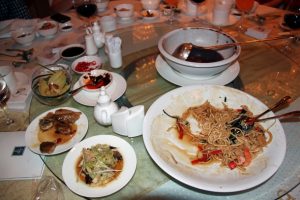Food insecurity is an issue that plagues most of the impoverished people of the world today (HDCs included). Due to this, I decided to join with 4 other individuals in combating food insecurity.

“New Research Shows Food Insecurity and Income Inequality Deepening in Northern Scarborough” © [2017] · Scarborough Community Renewal Organization.
The main objectives of our group were simple: find stores or restaurants which would normally throw away extra food, and use that food to create a shared meal among homeless people. These interactions would go beyond just serving food. We initially planned on having a discussion with these people, and creating a dialogue about the issue of food waste and food insecurity. We also planned on having a town hall meeting with a variety of panel members where we discussed our objectives and how we can increase access to food for those who lack it. By publicizing this event on Facebook and publications such as The Daily, we hoped to bring about these issues to the UW community, as well as the general public.

“The Business Opportunity in Food Waste”. © 2018 Manuseto Ventures. Inc.com
As our group discussed how to organize and plan an event on such a large scale, we naturally ran into a few roadblocks. On top of other priorities many of us had such as work, finding a time and place to meet up turned out to be difficult. Searching for organizations to call proved to be tiring and time consuming. Yet even after all that, actually calling these organizations and setting up a time and place where we could host a dinner was our biggest roadblock. Many of these organizations were booked with other priorities or simply didn’t have the time. Others blatantly told us that a group of college students interacting with the homeless couldn’t be trusted. Whatever the case was, actually setting up the dinner proved to be our biggest roadblock, and thus our group was unable to make it happen.

“Food Wastage in Singapore” Copyright © Green Future Solutions. http://www.savefoodcutwaste.com/food-waste/food-wastage-in-singapore/
While meeting with my group several times throughout the quarter, I realized many things. One being that our group’s objectives were consistent with “thinking in circles” that underlies the foundation for Gaia theory. I also realized the irony of learning about food insecurity in class, while being surrounded by a homeless population who struggled to eat. But the biggest lesson I learned amongst all this concerns systems thinking. Human made systems such as capitalism and by extension the industrialized food system, are incompatible with “thinking in circles” as shown by the organizations unwilling to work with us on these issues.
